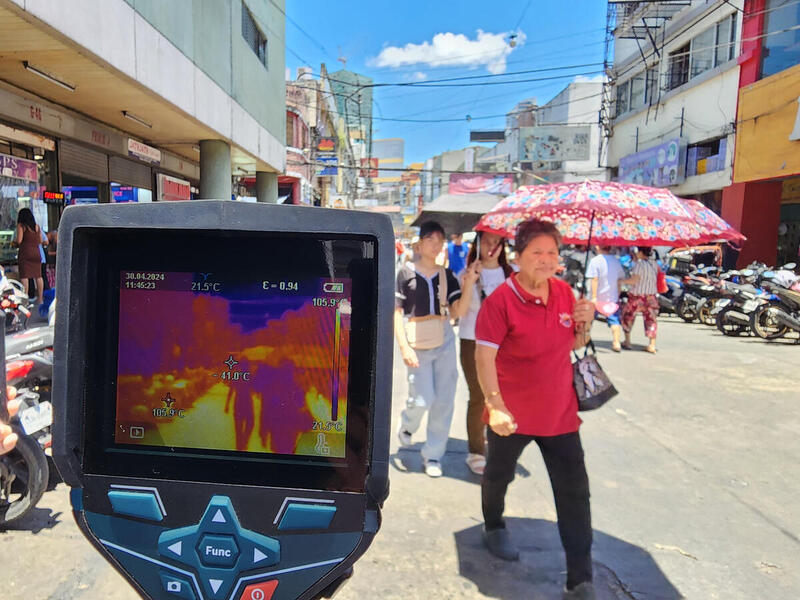QUEZON CITY, Philippines (30 April 2024) — The number of areas that have reached the danger-level on the heat index are on a steady increase, with areas breaking previous records and some reaching up to 50℃ on the scale.

Reacting to this, Greenpeace Philippines campaigner Khevin Yu said:
“The Philippines is currently in the grip of a severe El Niño, with its impacts aggravated by the climate crisis. Temperatures and heat indices across the country have hit record highs in the past week, affecting farmers, students, senior citizens, among many others who are already the most vulnerable to the impacts of the climate crisis.
“We call on our government to ensure measures that will mitigate the impacts of El Niño on our water supply, food production, and power generation.To this end, Greenpeace calls for the following:
- A shift in Philippine food and agriculture, to a system that is more environment-friendly and climate-resilient. This is to ensure food and nutrition security, at the same time, uplift the lives of Filipino farmers, especially as we continue to fend off the effects of El Niño and prepare for La Niña.
- Improved investments in ecological agriculture to boost the resiliency of our nation’s farming, such as well-funded programs that will enhance the capacity of farmers, and empower them to become self-sufficient and more capable to respond to a crisis.
- Formulation and implementation of a comprehensive food policy that will address food, nutrition, and environmental security.
- We need to further accelerate the transition towards the use of renewable energy that drastically reduces the use of water for power generation for future occurrence of El Niño.
- More importantly, communities at the frontlines of the climate crisis should not bear the burden of making lifestyle and behavioral changes on top of weathering the worst impacts and being expected to bounce back better.
“The increasingly erratic and unpredictable climate pattern bears the thumbprint of climate change. As this new reality becomes the norm rather than the exception, more and more communities are now demanding accountability from carbon majors. The government should pursue any and all means to make oil and gas companies accountable and liable for the suffering Filipinos have experienced. We will not take this sitting down and we will take them to account for the harms they are continually causing.”
